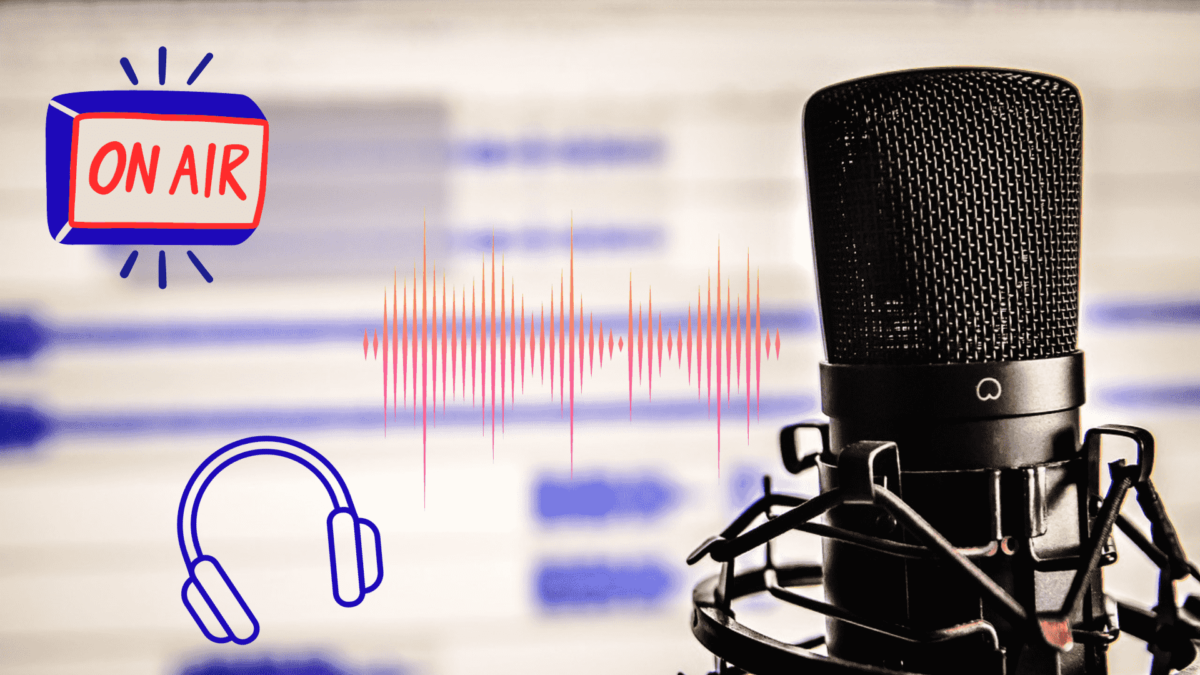In today’s fast-paced digital age, where attention spans are dwindling and consumers are bombarded with information, businesses are constantly seeking innovative ways to connect with their target audience. Enter the podcast – an audio medium that has revolutionized the marketing landscape. This article explores if a podcast is the new marketing tool, how it’s shaping the marketing landscape, and presents real-life examples and a case study to illustrate its profound impact.
What is a Podcast?
A podcast is a digital audio or video file series made available on the internet for streaming and downloading. Unlike traditional radio or television, podcasts are accessible on-demand, allowing listeners to tune in at their convenience. They cover an array of topics, from entertainment and education to news and niche interests. What distinguishes a podcast is its intimate, conversational tone, making listeners feel like they’re part of a meaningful discussion.
Shaping the Marketing Landscape
Podcasts have rapidly become a force to be reckoned with in the marketing world. Here’s how they are transforming the marketing landscape:
- Targeted Reach: Podcasts allow marketers to hone in on specific niches and demographics. Brands can partner with relevant podcasts to reach their ideal audience directly. For instance, a fitness brand could sponsor a health and wellness podcast to target fitness enthusiasts.
- Authenticity and Trust: Podcast hosts often develop deep connections with their audience through their voices and personalities. When hosts endorse products or services, it comes across as a trusted recommendation rather than a sales pitch, fostering authenticity.
- Content Marketing: Podcasts provide an excellent platform for content marketing. Companies can create branded podcasts that offer valuable insights, educational content, or industry commentary, establishing themselves as thought leaders.
- Storytelling: Successful podcasts are often centered around compelling storytelling. Marketers can use storytelling to humanize their brand, connect emotionally with listeners, and create lasting impressions.
Real-Life Examples
Let’s examine a couple of real-life examples to see how podcasts are making a significant impact on marketing:
- “The Joe Rogan Experience“: Joe Rogan’s podcast has millions of listeners and is a prime example of the podcasting phenomenon. Rogan, a comedian and commentator, frequently hosts guests from various fields, including Elon Musk and Bernie Sanders. Brands that sponsor his podcast enjoy exposure to a diverse and engaged audience.
- “The Ranveer Show“: Hosted by Ranveer Allahbadia, this podcast covers a wide range of topics, including fitness, entrepreneurship, and self-improvement. It has a significant following and attracts a diverse audience.
- “Advertising is Dead“: Hosted by Varun Duggirala, this podcast explores the ever-evolving world of advertising and marketing. It’s an ideal platform for brands looking to reach marketing professionals and enthusiasts.
- “The Seen and The Unseen“: Hosted by Amit Varma, this podcast explores the unseen aspects of various issues, including economics, politics, and society. It’s a thought-provoking platform for brands interested in intellectual and socially conscious audiences.
- “Maedin India“: This podcast showcases the best of the Indian independent music scene. It’s a great platform for music-related brands and events.
Before choosing a podcast as an advertising platform, it’s essential to research the podcast’s audience demographics, engagement, and alignment with your brand’s values and messaging. Additionally, reach out to podcast hosts and networks to discuss potential advertising opportunities and rates. Podcast advertising can be highly effective when done strategically and in collaboration with the right content creators.
Case Study: “Mailchimp Presents“
Mailchimp, an email marketing platform, launched its own podcast network, “Mailchimp Presents,” to provide small business owners with valuable content. They produced shows like “The Jump,” which delves into the stories of entrepreneurs and “Science of Host Reads,” which explores the effectiveness of podcast advertising. By offering high-quality content aligned with their target audience’s needs, Mailchimp strengthened its brand positioning and boosted engagement with its platform.
Conclusion
In a world where consumers are increasingly selective about the content they engage with, podcasts have emerged as a potent marketing tool. They offer a unique blend of targeted reach, authenticity, and storytelling that few other mediums can match. As seen in examples like “The Joe Rogan Experience” and Mailchimp’s podcast network, podcasts have the potential to transform a brand’s visibility and reputation. So, if you’re looking to make a significant impact in the marketing landscape, it’s time to plug into the power of podcasts. Your audience is listening.


